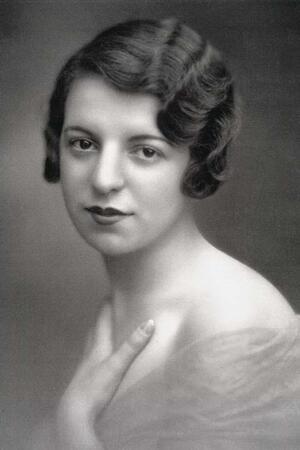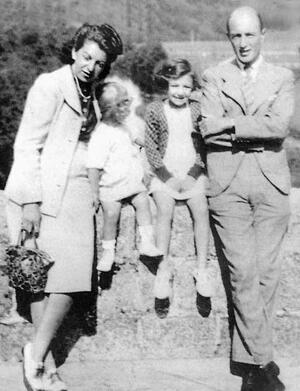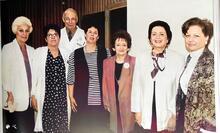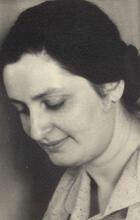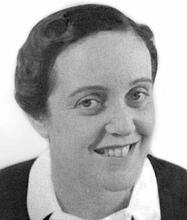Paulette Weill Oppert Fink
Paulette Weill Oppert Fink served briefly as a Red Cross nurse during World War II. But after her husband, serving in the French Army, escaped capture, Fink and her family fled to the unoccupied zone of France and joined the Resistance, hiding Jewish children and helping them escape. Despite her husband’s death, Fink continued working with the Resistance and the Jewish Brigade. When the war ended, she smuggled Jewish refugees into British Palestine and worked with the Joint Distribution Committee to open eleven orphanages for child survivors, often traveling to America to raise funds. She settled in Minneapolis, where she served as national chair of the UJA Women’s Division for three years.
Early Life
Born in Mulhouse, a city in Alsace, Paulette was the daughter of Blanche Salomon, who was born in Paris on December 15, 1887, and died in Paris in October 1965, and Jean Weill, who was born in Mulhouse on January 17, 1876, and died in Paris in May 1965. In 1929 Jean Weill built a factory for the manufacture of BATA shoes in the village of Moussey in the Moselle department of France.
World War II
Paulette Weill and her first husband, Yves Oppert (1909–June 26, 1944) were married in January 1934 and had two daughters, Nadine Oppert Bicher (b. 1935) and Francelyne Oppert Lurie (b. 1939). They were living in Paris when Germany invaded France. Yves served as a lieutenant in the French Army and was taken prisoner, but he managed to escape. Paulette Oppert also served on the front line as a Red Cross nurse. Paulette’s parents escaped from France at the end of 1941 via Spain and Portugal and sailed to the United States, living in New York for the duration of the war. They returned to Paris in June 1946.
When France fell to the Germans, Yves and Paulette escaped to the village of Izeaux, near Grenoble, in the unoccupied zone of France under the new Vichy regime. They joined the Resistance to sabotage the German “war machine” and collaborated with a network of Catholic and Protestant volunteers to hide and save Jewish children left behind by Polish, Hungarian, Romanian, and French Jews when they were deported to the concentration camps.
With the invasion of Normandy on June 6, 1944, Charles de Gaulle urged the French Resistance to work in the open; Paulette Oppert and her husband did so. Yves was caught by the French militia, imprisoned, and tortured to death. Paulette continued in the Resistance, traveling by bicycle throughout the country while her two daughters were being cared for by Pastor André Trocmé in Le Chambon-Sur-Lignon, a town in southern France. She also worked with the Jewish Brigade.
Postwar Life
After the war ended, she helped smuggle refugees into Palestine and worked with the Joint Distribution Committee to organize eleven orphan homes, providing housing for one thousand five hundred child survivors of the Holocaust; her first orphanage was in Malmaison, a château about eleven km west of Paris. Because she could speak English, Paulette also traveled to the United States in 1946 to help the Joint Distribution Committee raise money for her orphanages and for Palestine. In 1948 she traveled to the United States, where she spoke at breakfast meetings, luncheons, and dinners, and on radio and television, in forty-two states, to raise money for the new state of Israel. She brought her ten-year-old daughter Nadine with her when she made her first fund-raising trip in 1946 and brought Francelyne to the United States a years later. In 1951 she enrolled both girls in the Lycée Francais in New York City, “so they could lead a normal life, at last.”
On September 14, 1954, she married Israel “Iz” Fink (1902–1991), a Minneapolis businessman she had been introduced to on one of her speaking tours. Since her new husband was CEO of a large and very successful business, she and her daughters became permanent residents of Minneapolis, MN. Inspired by a visit to Israel with Paulette, Iz served as campaign chairman and president of the Jewish Federation in Minneapolis and served on the national campaign board of the United Jewish Appeal for several years. He also chaired several committees, while Paulette Fink became national chair of the UJA Women’s Division for three years. Paulette Fink’s sister, Jacqueline Weill Bienveniste, lived in France and passed away in 2015, and her brother, Pierre, resided in New York City until he died in 2001.
Paulette Fink died on April 2, 2005.

